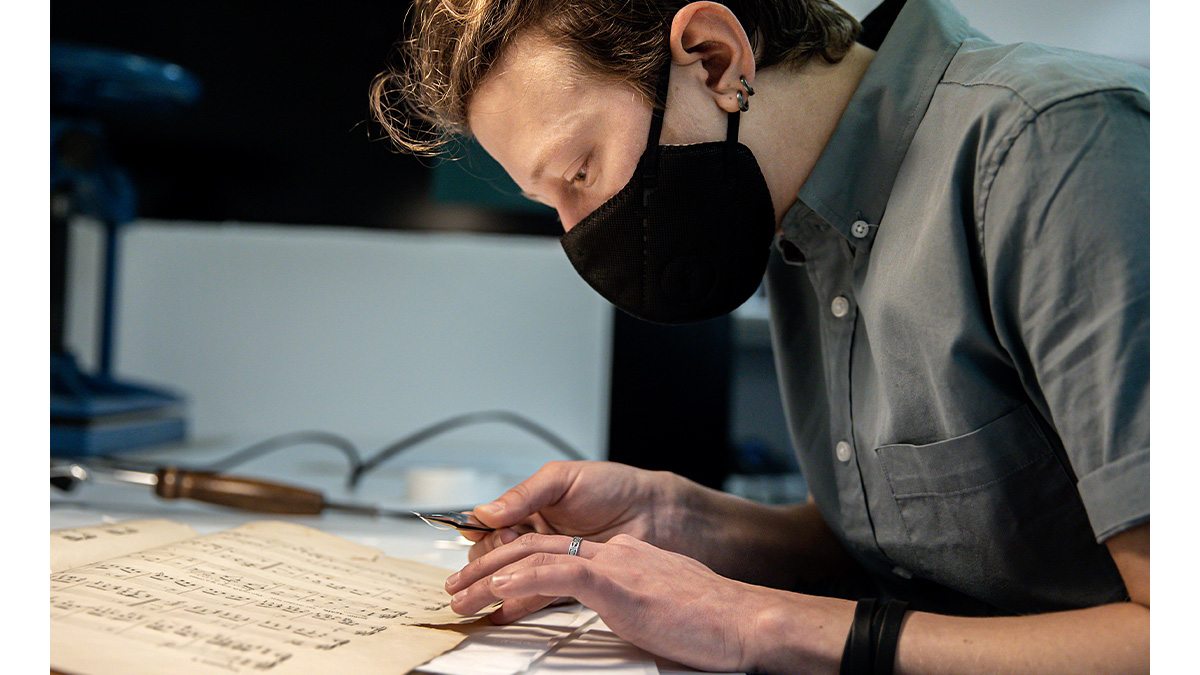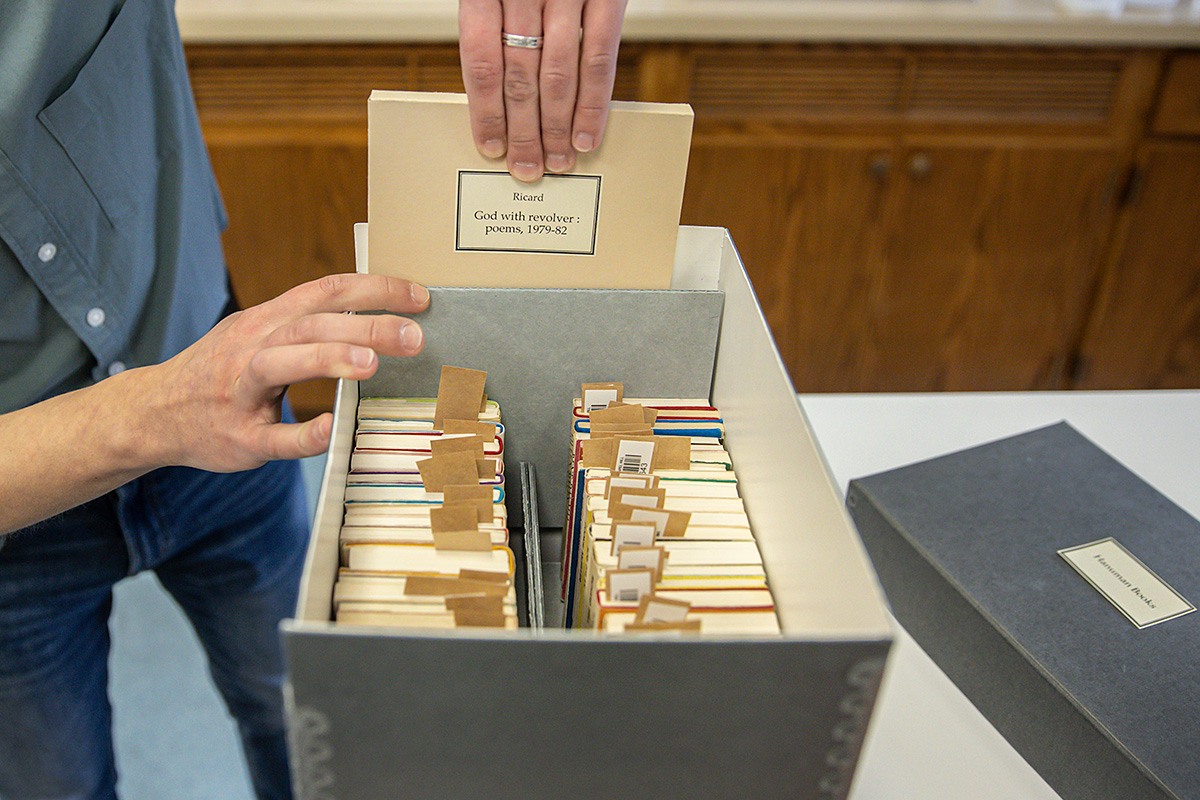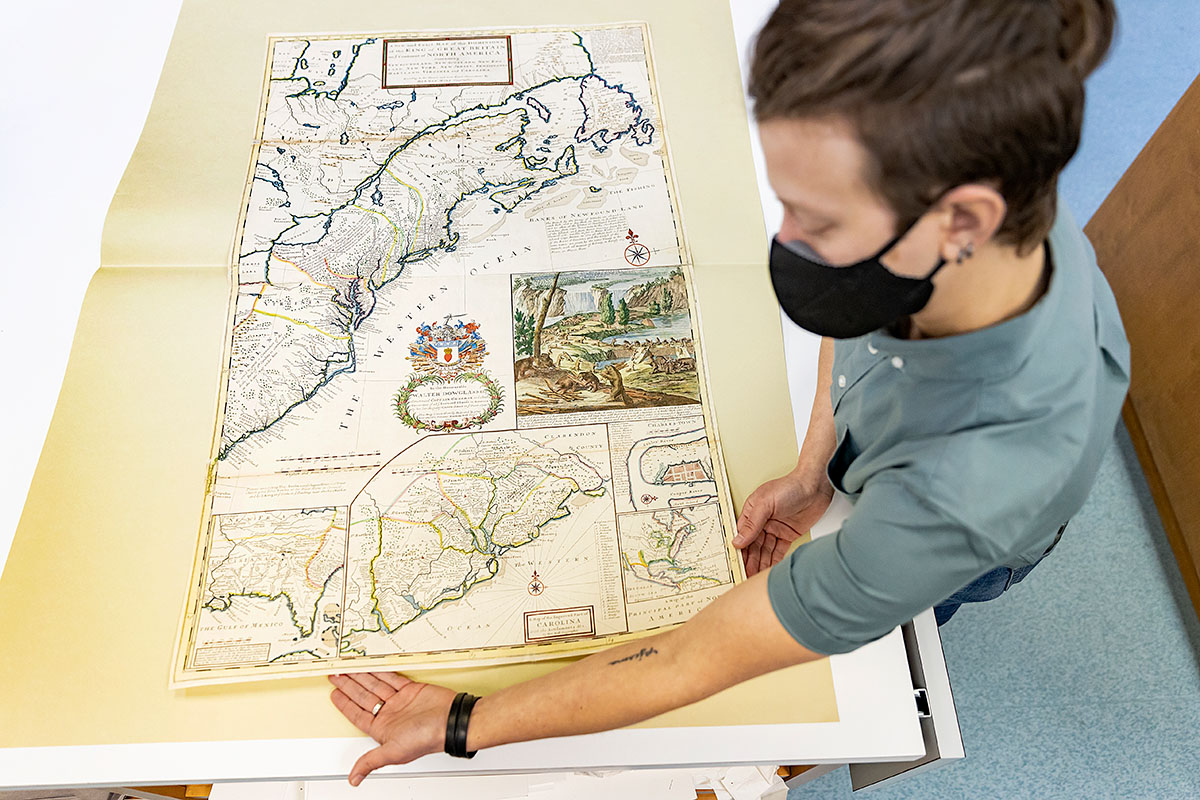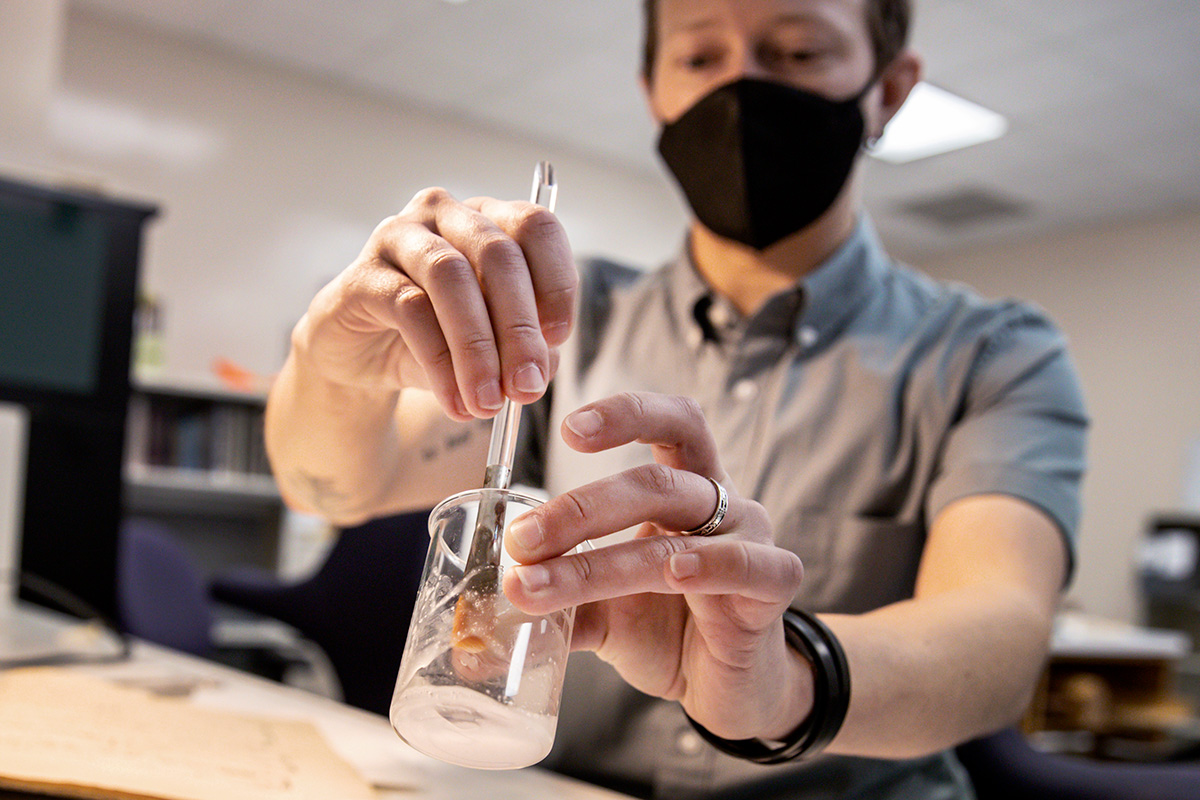Preserving Carolina’s treasured collections
Sam Huener and the team at Wilson Library's Conservation Lab are working to preserve the University’s most prized books and documents.

Most Wilson Library visitors are familiar with the Fearrington Reading Room, but there is another room just down the hallway that plays a pivotal role in maintaining the integrity of the library’s extensive collection.
The Conservation Lab is where conservation technician Sam Huener and other members of the team repair special collections materials in Wilson Library. They work on everything from historic documents that tell the story of North Carolina and the South to rare books that chronicle human endeavors over centuries.
“Part of the appeal of visiting special collections, especially as an undergrad, is to see a piece of paper with handwriting on it from 1720 or whenever,” Huener said. “It can be a visceral experience to have the material culture right there and interact with it.”
Huener uses a variety of tools and materials, depending upon the task. Specially shaped tweezers might be used to manipulate delicate materials when mending the page of a book, while a bone folder tool could be used to create a deep crease during the making of a customized enclosure.
“A lot of the work is problem-solving, and there’s a high level of detail that’s put into thinking about these enclosures and how items might be stored optimally,” said Huener. “The process varies a lot depending on the item, and it’s a fun part of the job, figuring out how to make it happy on the shelf — or as happy as it can be.”
In addition to repairing documents, Huener also points to environmental monitoring as a necessary component of keeping the collections protected. Thermostats throughout areas where library collections are housed must be constantly checked to ensure a stable temperature and humidity.
 The Conservation Lab’s work is critical for preserving the documents that help learners and researchers engage with history. Huener also serves on the Wilson Reckoning Coordinating Committee, which seeks to employ racial equity, inclusion and social justice as a lens for the work being done at University Libraries.
The Conservation Lab’s work is critical for preserving the documents that help learners and researchers engage with history. Huener also serves on the Wilson Reckoning Coordinating Committee, which seeks to employ racial equity, inclusion and social justice as a lens for the work being done at University Libraries.
“Part of the Library’s Reckoning Initiative is making more of our work actively anti-racist, inclusive and equity-centered,” they said. “Our daily work should involve questioning ourselves and what we’ve come to know as our standard procedures, regardless of our role. I’ve been interested in looking for ways to change procedures and workflows to more intentionally engage with decision making and prioritization, which ultimately reallocates time and effort back into areas of the collections that have been historically neglected or ignored.”
Editor’s note: The Conservation Lab is not currently accepting interns or student workers. The lab does not undertake private work.








